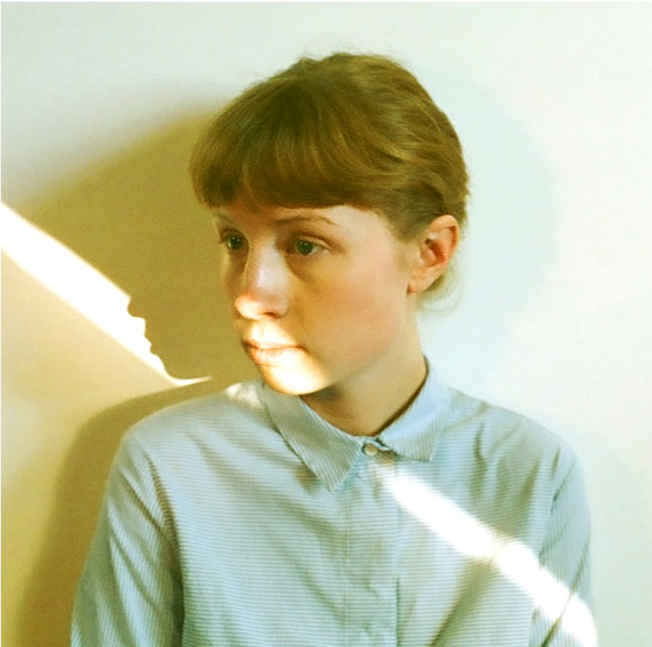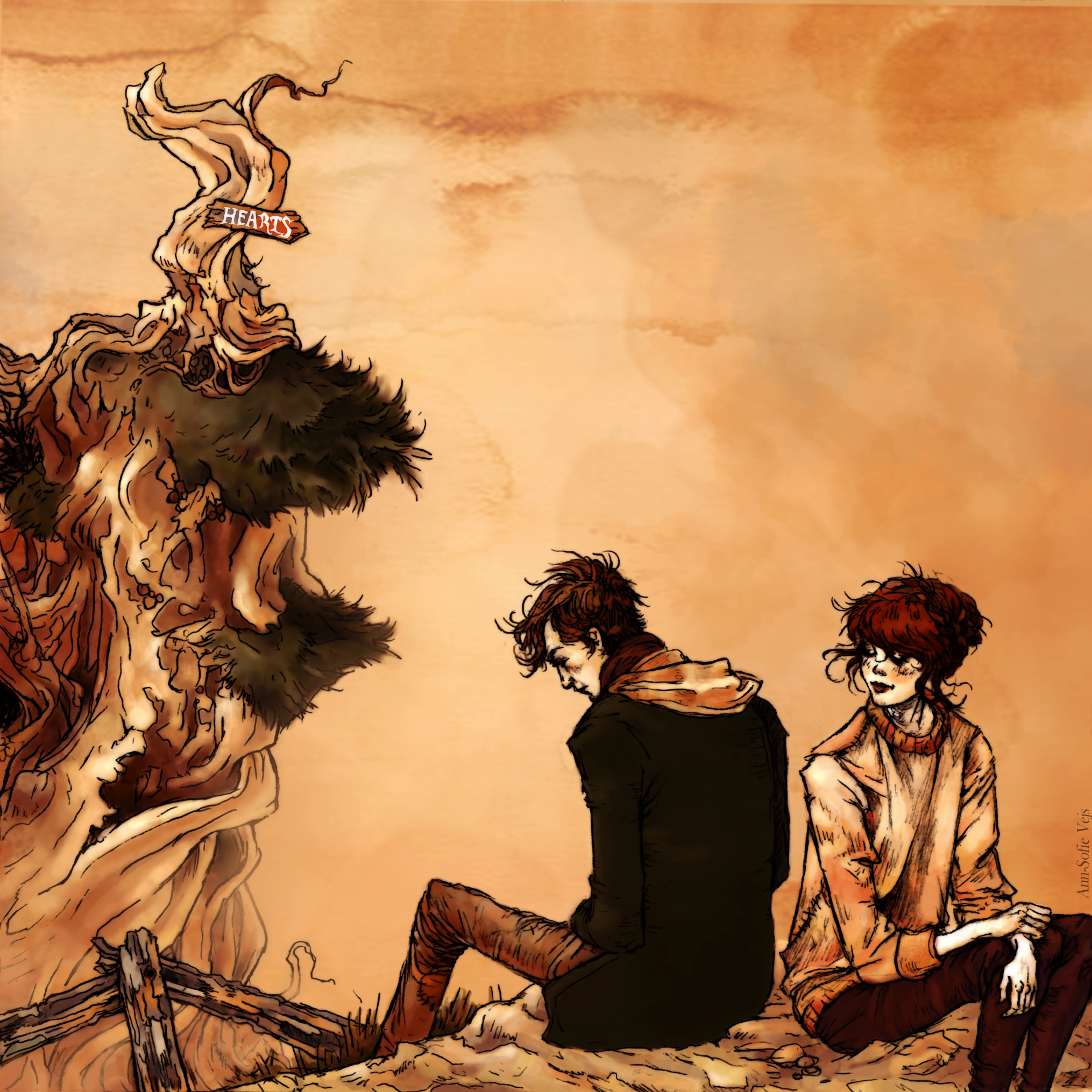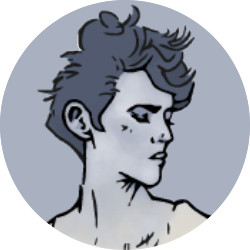 Photo credit: Adam Phillips
Photo credit: Adam Phillips
The Interview
What was it that set you on the path to becoming a songwriter?
Ditte: I think I always had a lot of good music around me when I was growing up, but it was probably only once I started going to the open mic that Rosie (Caldecott) went to at Catweazle, saw her play, and thought: Oh, I could try that. I started listening more to people like Laura Marling, and just gave it a go and got really addicted to it.
Without having seen a friend performing, do you think you would still have done it yourself?
Ditte: Without having the space that Catweazle provided… I might have done it, but it might have taken me a lot longer. It’s such a supportive space, and it’s so open; you can do anything and people are so ready to listen. It was an education, I think, in the nicest way, and there’s a lot I wouldn’t have done without it. I wrote a lot of bad songs as well, and it was a space to get them out without being too much in the public eye.
Have you found there to be many venues like that, or is it a one-off?
Ditte: It’s definitely a one-off. I mean, there are some other open mics and smaller, regular gigs that I’ve been to around the country, but I’ve never found anything like that. It’s definitely really, really unique.
What led you to writing songs that are so unhurried and slumberous in style?
Ditte: I don’t think it’s something I set out to do; it’s probably just my personality. I think I’ve learnt that I’m okay with taking things slowly and just saying as much as I need to say. And that, probably, is what happens to my songs. I take a long time to write them, I take a long time before I want to show them to anyone else: until I’m really, really happy with them. So yeah, it’s probably just my personality made into song form.
Would you say it reflects the pace at which you live your life?
Ditte: I think it definitely reflects a contentedness. I know how to enjoy things. I allow myself to enjoy things. There are definitely a lot of parts of my life that aren’t slumberous and docile.
What is the most important element in any song that you write?
Ditte: I guess the melody more than anything; I think that’s what really draws people in, and is also what you feel when you’re singing. Then, you’re fitting the words around it. If it’s a really good melody, you can get away with strange words. A lot of the time I do have the words first, but I feel like they come alive once they have the melody. I think I’m always much more aware of what my words are than my melody; I can feel a lot more self-conscious about the words, and the melody frees them up. I always try to imagine what the lyrics would sound like without the melody, like spoken-word. I think there’s something about putting words to a melody which gives you a lot more leeway — there’s less judgement on them if you have a good melody.
Your songs don’t tend to follow a regular structure, similarly to Rosie. I wonder: is it a coincidence that you both veer away from the conventional pattern?
Ditte: Probably not. I mean, she started writing a lot before me, and I sang a lot with her at the beginning, and got used to her songs. Also listening to a lot of Joanna Newsom. She really opened my mind; songs can be ten minutes long and it feels much more like a story. It’s a lot more liberal, and I think listening to a lot of her really helped. And maybe an interest in a lot of different kinds of music — not just singer-songwriter stuff or pop stuff — kind of helped.
How easily does creativity come for you, and how long do ideas take to develop?
Ditte: I like doing a lot of different things — not at once, but in my life, like, in a week. If I was writing songs the whole week, I would fail; I think it would be rubbish. So, I feel like I always need a balance of different outlets for creativity, then also having normal life, like your job: the more mundane things. I really like having that variety, and the routine of it. As long I maintain that, the times when I do sit down and I’m like, “Oh, I’ve got a couple of hours; I’ll sit down and play the guitar”, I really maintain that excitement about it. I think having it restrained in that way… it’s like, you can never have enough time for it, and that kind of keeps the momentum up.
Do you deliberately set aside time for it, or is it a case of fitting it in on the fly?
Ditte: I think because I always really want to do it, I make time for it. It’s more like a ‘fitting in’. With my new project, I need to write a certain amount of songs by a certain time, which isn’t something I’ve done much of before. That makes it different because then you have to think more about the time-frame and be like, “I do actually have to get this done, I’m getting money for this” – which gives it a different edge, and I think that maybe makes me write in a different way, as well.
So, what is the new project?
Ditte: Basically, it’s to write a collection of songs that are about the North East. Two years ago, I was asked to take part in this project called Music In Museums: to write ten minutes of material based on the archives in this mining museum. So, I got this ten-minute-long song from that, and it didn’t go on the album because I thought it was too long to fit in, and also it was a different sort of style — it was more based on a character, so it was less of a personal song. I’ve always wanted to orchestrate it, because it’s got all these different sections in, a bit like a Joanna Newsom song. So, I’ve been trying for two or three years to get funding to commission someone to orchestrate it and do a performance, and, eventually, I got this funding called the Alan Hull award, which is a local award for local artists, and then managed to get some matched funding. At that point, I thought: I should probably make this into a full project. As part of this award, you get to do a gig at The Sage, so it suddenly turned into this big, exciting thing. It’s going to be four or five songs, a small orchestra and quite a few singers. So, that’s what I’m working towards at the moment.
I think with my usual songs, they’re not really meant for big, more theatrical stuff; I think they’re more just meant for a small pub or something, and that’s what’s nice about them. But these songs, I’m hoping, will be a bit more theatrical: more of a show. I feel I can do that because they won’t really be about me, as much; they’ll be about different characters or different events.
And this will be just the one show?
Ditte: Yes. There’s the possibility of touring it, but that will be another set of funding, I think. We’re going to record the live performance, so we’ll have that to pass around.
You sound excited.
Ditte: I’m really excited. I think it’s a nice thing to do after an album. There might not even be a physical CD or anything, so I feel a lot of the practical pressures are off — and I just want to be a bit more experimental with the songs.
Having taken much of the summer off from music, did you feel you needed something like this to get you going again?
Ditte: Definitely. I’m really glad I’ve got it. To be honest, I started getting a bit tired of the album songs, which I think is quite a normal thing for artists after they’ve made the album. I was playing gigs, and I just wasn’t feeling the songs; I was getting halfway through and being like, “Oh, gosh. I’m a bit bored… Are other people bored?” [laughs] Which is awful, and I always think if you get to that point you should stop playing, even though I think other people would disagree. I mean, I don’t get loads of gig offers, but I said no to a few, and just thought: I’ll have the summer off and then, come September, I can get back into this and really be focused on it.
Before you reach that point where boredom sets in, are there any other obstacles you tend to find yourself faced with — perhaps during the creative process?
Ditte: Worrying what people will think of the song before it’s finished. I always feel like that’s a real flaw. I think that comes when you have performed a lot — you’re really aware that at some point you’re going to be standing on stage singing to people and wondering what they think. I can often do that with the words before they’ve had a chance to settle. I hate that. Being like, “Oh, I can’t say that, because people will think this”, or something like that. I find that really annoying.”
What is your greatest motivation for creating?
Ditte: That’s a good question… I really enjoy a good song, I enjoy performing it, and I enjoy giving it to other people. I guess you could also say there’s a lot of catharsis in sorting out whatever thoughts need to come out of my head, but that feels quite separate to when you have your complete song and you start performing it. I definitely get a real buzz off of giving it to the world.
And what is it you hope to communicate to people through your work?
Ditte: … I don’t know! … I guess you want to communicate something of yourself in the hope that other people will understand and relate in some way — an empathy thing. I think a lot of people see the songs as really melancholy, which they can be, and then they look at me and they’re like, “But, you’re so upbeat! Why do you write those songs?” It’s almost like — and I think this might be the same for a lot of artists — your performing side, as the maker of the songs, is different from what you are every day. I definitely have had a lot of open and honest conversations with people who have listened to the music. Sometimes, it can cut through all the small talk, and it kind of invokes honesty in other people.
It must be nice to have that genuine dialogue.
Ditte: Yeah, I really love that: when people ask questions about the songs, or they say, “This song’s been really important to me.” Then, I feel like they’re really worth putting out in the world. I think it’s the really nice thing about making things: that you can put out all this stuff that is about you, but it’s doing something productive. I think it’s so important; it’s a really good thing for a person to be able to do, and anyone can do it. It’s a way of turning whatever your life is, or feelings are, into something visual, physical or practical.
What, if any, are the fears that your creative output brings more to the surface?
Ditte: Everything. [laughs] You can’t hide anything. Anything you’re subconsciously feeling, it always comes through in the end. Sometimes, I’ll listen back to my old songs and be like, “That makes sense now”, so I think everything comes out in the end.
And what makes you smile?
Ditte: What, anything? [laughs] I don’t know. I’m a very smiley person, I think… [laughs] Everything!
In which case — what are your interests away from music?
Ditte: Well, I studied art, but I think the art and the music crosses over a lot. It took me a few years to realise that art can be anything, and performance is a really big part of art. So, I started doing lots of singing within my art practice, and looking into storytelling: folk traditions and things like that. I was like, “This is just what my music stuff is about. Why does it have to be separate?”
I’m also really interested in working with children. I’m actually a childminder; that’s what pays the rent. Also, a lot of working in schools and what I was just talking about — the way that being creative is a way to cope with life. And that is for anyone. If I could do something, it would be to pass that on to younger people. There’s still such a block: that art is an elite thing, or music is a talent. Although you can have talent, that’s only a small part of it, and it’s about being curious and open — not being told you can’t do art because you can’t draw, or something like that. So I’m really passionate about that.
So what do you feel you gain most from being artistically inclined?
Ditte: I guess I feel like I’ve gained an understanding of myself: an ability to be okay with myself.
To what extent would you like your creative output to define you as a person?
Ditte: I don’t know. That isn’t something I’ve thought about very much… I guess, not that much. I think it’s just a part of me; it’s not everything. It doesn’t have to be this massive thing.
It’s important, but it’s not the be-all and end-all.
Ditte: Yeah, and I think that’s probably part of how I always want to have lots of different things going on. So I was kind of wary of putting all the eggs in one basket: being like, “This is me! This is what I want to do.” Which I think some people find annoying, because they’re like, “You should push this as far as you can.” I just have this fear that that will kill it, or that’s not what it’s meant for. Touring all the time or having big contracts — I just feel like it’s not meant for that.
Finally, how do you hope you’ll look back on your entire body of work?
Ditte: I hope I’ll just be proud of it. I hope that the album I made will stand the test of time. I feel like it will. I feel like I chose those songs because they had lasted that long already. I can be quite critical of songs and be like, “I’m not singing that one anymore”, and forget how to play it. I feel like they’ve been remembered in my head for a reason. With this new project, I hope that I will feel like I’ve made the most of it in terms of exploring everything that I can do. I’ve been dipping in and out of some electronic music as well, but maybe under a different name. I think I want to feel like I have a varied body of work, and have really enjoyed it.
 Ditte Elly featured onBeautiful Songwriting 5
Ditte Elly featured onBeautiful Songwriting 5You can keep up with Ditte via her Facebook and Twitter pages, and purchase 'Songs' over on Bandcamp.
If you enjoyed reading this interview and happen to think we're doing something right, please consider sharing the link -- whether on social media, or just with a friend, it'd really help us out! We're also on Facebook, Instagram (@alonelyghostburning) and Twitter, so if you'd like to keep up-to-date with the publication of new content, and also provide us with a whole heap of motivation, please do give us a like or follow.


